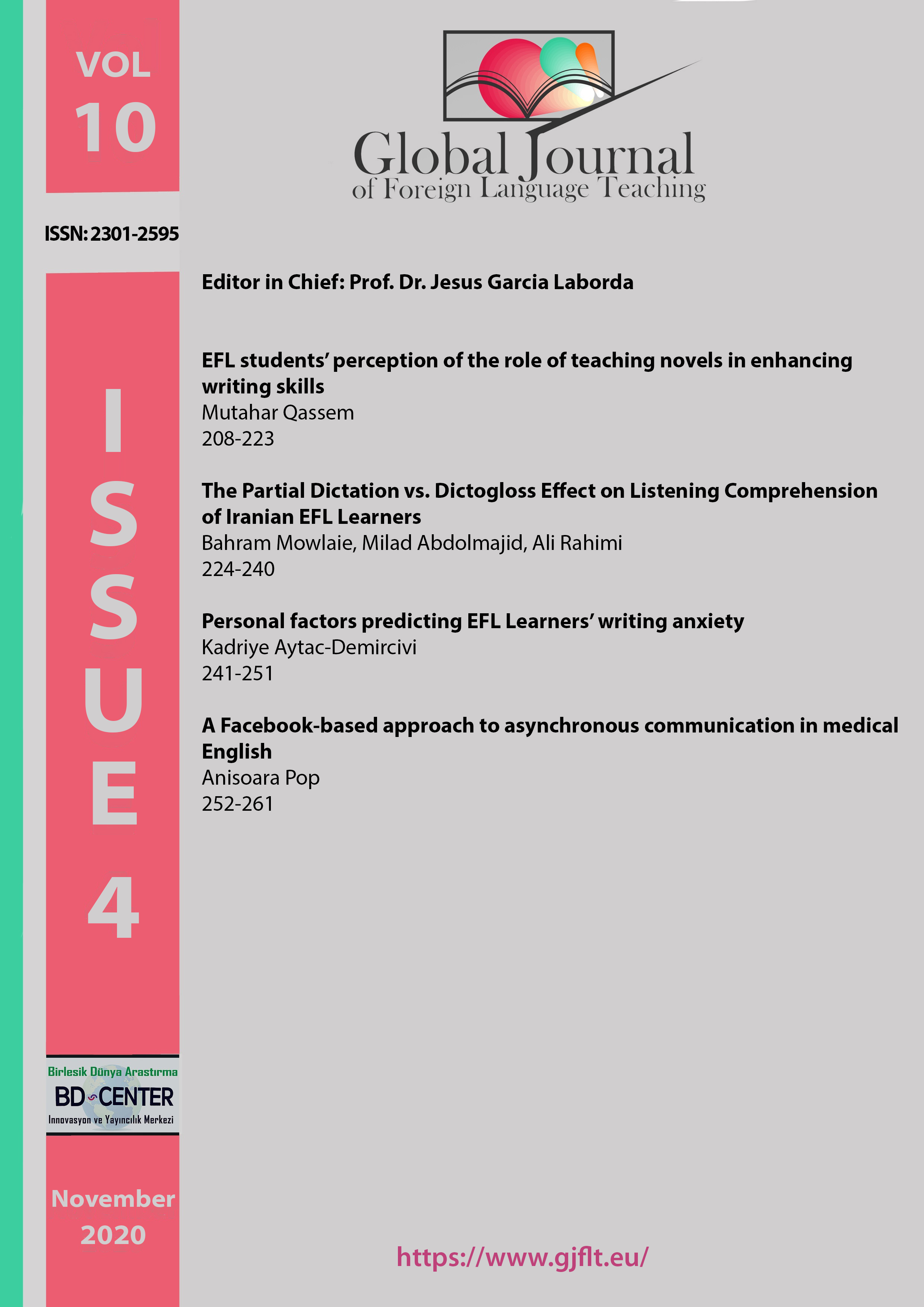The Partial Dictation vs. Dictogloss Effect on Listening Comprehension of Iranian EFL Learners
Main Article Content
Abstract
The unique characteristics of the listening skill and the vital role they play in language learning and communication do not receive the attention they deserve and the situation is worsened in EFL contexts due to lack of communication in everyday context. Given this, the present study was an attempt to empirically investigate if partial dictation versus dictogloss had any significant effect on listening comprehension of Iranian EFL learners. To this end, 60 male EFL learners were selected via double sampling and, after taking homogeneity test and listening pre-test, they were randomly assigned to two experimental groups (partial dictation versus dictogloss) and a control group. The first experimental group was exposed to dictogloss, while the second experimental group was exposed to partial diction. The control group underwent the mainstream usual classroom activities. After the treatment which took one hour each session for seven sessions, a listening post-test was given to all groups. The thorough analysis of data using paired sample t-test indicated that partial dictation group slightly outperformed the dictogloss group in the listening post-test and both experimental groups significantly outperformed the control group in the listening test. The result can have implications for learners, teachers, and material developers in all second and, especially, foreign language contexts where listening comprehension does not receive the attention it deserves and this, in turns, deprives EFL learners of viable sources of input. It is recommended that dictation in either partial format or dictogloss become an instructional activity in English classes because of its usefulness in improving listening comprehension and, more importantly, because of its practicality which is an important concern in many language learning contexts.
Key words: Dictogloss; English as a Foreign Language, Listening Comprehension; Partial Dictation
Downloads
Article Details

This work is licensed under a Creative Commons Attribution 4.0 International License.
Authors who publish with this journal agree to the following terms:- Authors retain copyright and grant the journal right of first publication with the work simultaneously licensed under a Creative Commons Attribution License that allows others to share the work with an acknowledgement of the work's authorship and initial publication in this journal.
- Authors are able to enter into separate, additional contractual arrangements for the non-exclusive distribution of the journal's published version of the work (e.g., post it to an institutional repository or publish it in a book), with an acknowledgement of its initial publication in this journal.
- Authors are permitted and encouraged to post their work online (e.g., in institutional repositories or on their website) prior to and during the submission process, as it can lead to productive exchanges, as well as earlier and greater citation of published work (SeeThe Effect of Open Access).
